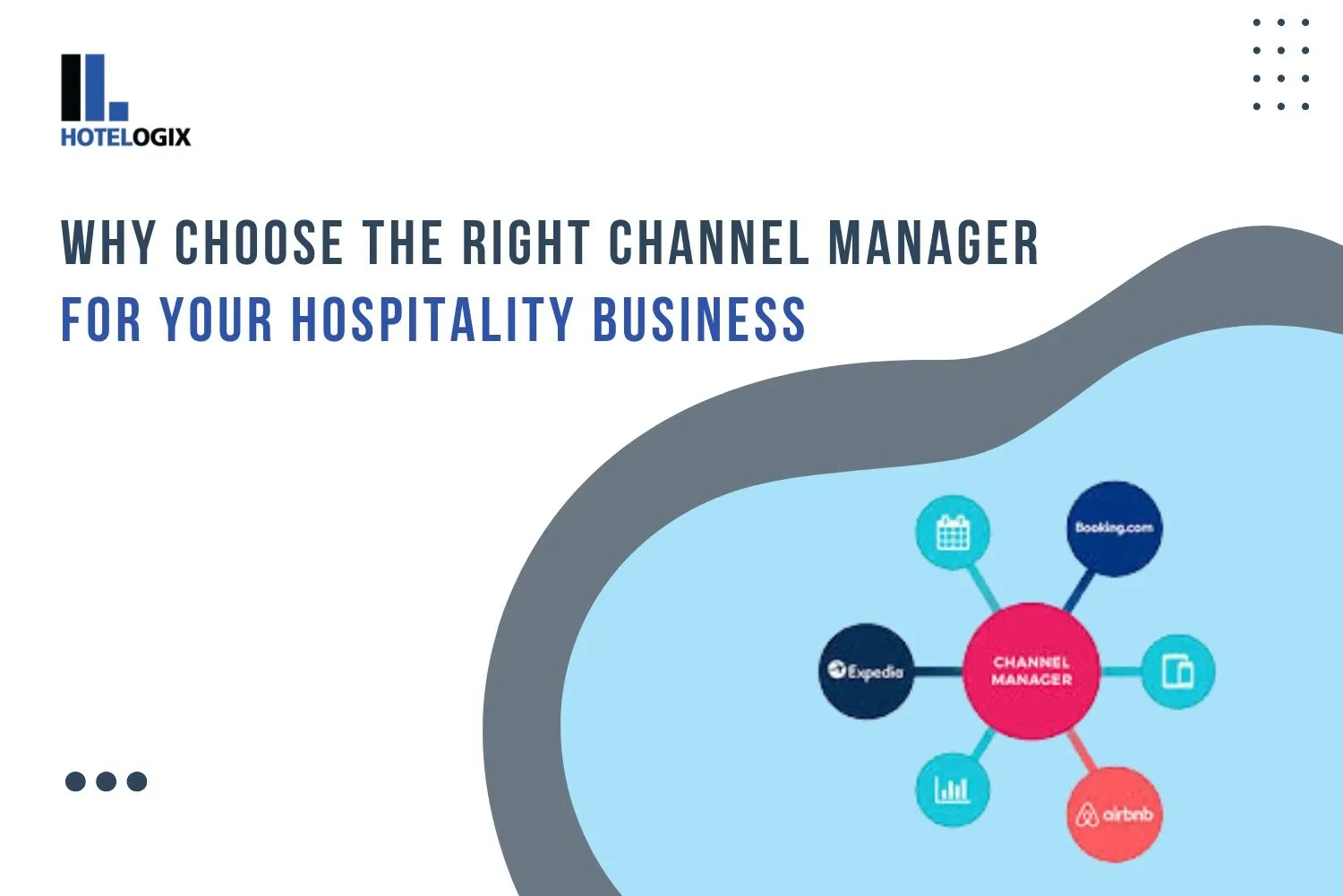Managing bookings across multiple channels has become a core part of running a successful hospitality business. From hotels and vacation rentals to holiday apartments, properties of all types rely on channel managers to simplify operations. Choosing the best channel manager isn't just about convenience. It can directly impact revenue, guest satisfaction, and your ability to scale.
What Is a Channel Manager and Why Does It Matter?
A channel manager connects your property management system to booking platforms such as OTAs, GDS (Global Distribution Systems), and direct booking engines. It automatically updates room availability, rates, and reservations across all these platforms. This keeps everything consistent and reduces errors.
Properties using a reliable channel manager have reported:
- Fewer booking errors
- Increased direct bookings through better visibility
- Better time management for front-desk staff
This isn’t just useful for large hotels. A good hotel channel manager can make a huge difference for small properties too.
Key Features to Look For in the Best Channel Manager
Not every channel manager offers the same tools or ease of use. Here are some must-haves:
- Real-Time UpdatesBooking data changes constantly. If a guest books through one platform, your availability on other platforms must reflect this immediately. Delays can lead to double bookings or lost revenue.
- Compatibility with Major PlatformsA good channel manager integrates with OTAs like Booking.com, Expedia, and Airbnb. If you’re running vacation rentals or apartments, it should also work with platforms catering to those niches.
Read more on Best Online Travel Agencies for your Hotel
- User-Friendly DesignHoteliers and staff shouldn’t need weeks of training. The best channel manager is easy to understand and use from day one.
- Detailed Reporting ToolsInsight into where your bookings come from helps you focus efforts. Many properties have used these insights to cut unnecessary commissions by driving more direct bookings.
- Customization for Different Property TypesWhether you’re running a boutique hotel or holiday rentals, the system should cater to your needs. A channel manager for vacation rentals might prioritize weekly bookings, while hotels need daily rate adjustments.
How to Pick the Right Channel Manager for Your Business
There are hundreds of options in the market. Focusing on these key factors can help you choose:
1. Your Business Size and Type
If you manage a mid-sized hotel chain, you’ll need something with multi-property management capabilities. For small operators, simplicity and affordability might be the priority.
2. Integration Capabilities
Choose a solution that syncs seamlessly with your existing systems. For example, the best channel manager should link directly to your booking calendar and payment system.
3. Customer Support
Technology isn’t foolproof. Having access to 24/7 support ensures that issues are resolved quickly without affecting your bookings.
Real-World Impact of Using a Channel Manager
Hotels and rental properties using channel managers often see measurable improvements.
Case Study 1: A Mid-Size Hotel Chain in India
A 120-room hotel group operating in multiple cities struggled to manage listings on 10 OTAs. By switching to a channel manager, they:
- Reduced overbookings by 90%
- Increased occupancy by 15% in the first quarter
- Saved 20 hours per week on manual updates
Case Study 2: Vacation Rentals in Europe
An operator managing 50 holiday homes used to update availability manually. This often led to discrepancies across platforms. After adopting a channel manager, they:
- Cut errors by 85%
- Increased bookings during peak season by 25%
- Saw guest ratings improve due to better communication
Channel Management Best Practices
Using the right channel manager is only half the job. Follow these practices to make the most of your system:
- Keep Rates Competitive - Adjust prices frequently based on demand, market trends, and competitor rates. Many systems offer automated pricing tools.
- Prioritize Direct Bookings - While OTAs are valuable, direct bookings often mean higher profits. Use your channel manager to integrate with your website and drive traffic there.
- Monitor Performance Regularly- Check which platforms generate the most bookings. Focus your efforts and marketing budgets accordingly.
- Set Up Alerts- Many channel managers allow you to set alerts for low availability or price mismatches. Use these to stay on top of potential issues.
Benefits of a Well-Integrated Channel Manager
The impact of using a high-quality channel manager goes beyond avoiding booking errors. Some advantages include:
- Higher Revenue: Accurate inventory and pricing lead to more bookings at the right rates.
- Improved Guest Experience: Guests get real-time confirmation and accurate information about availability.
- Operational Efficiency: Staff can focus on guest interactions instead of manual updates.
The Growing Importance of Channel Management
The global travel market continues to grow, with online bookings making up over 60% of reservations in 2023. Hoteliers and property managers who rely on outdated systems risk falling behind competitors.
Investing in the best booking channel manager allows you to stay ahead of the curve. For hotels and holiday rentals alike, automation has become the new standard.
Hotel PMS Integration with Channel Manager
Furthermore, the two-way connectivity ensures that all reservations made through any OTA are instantly updated in the PMS, enabling hoteliers to focus on improving guest experiences while maximizing occupancy rates. Overall, Hotelogix's PMS with channel manager integration is a vital tool for modern hotels aiming to enhance operational efficiency and achieve sustainable growth.
Final Thoughts
Choosing the right channel manager for your hospitality business is one of the most important decisions you’ll make. Whether you manage a small vacation rental, a boutique hotel, or multiple apartments, the right solution saves time, reduces errors, and increases revenue.
Look for a system with real-time updates, platform compatibility, and strong support. Pay attention to the results seen by other businesses in your sector. With the right tools, your property will be well-equipped to handle the challenges of modern hospitality.

